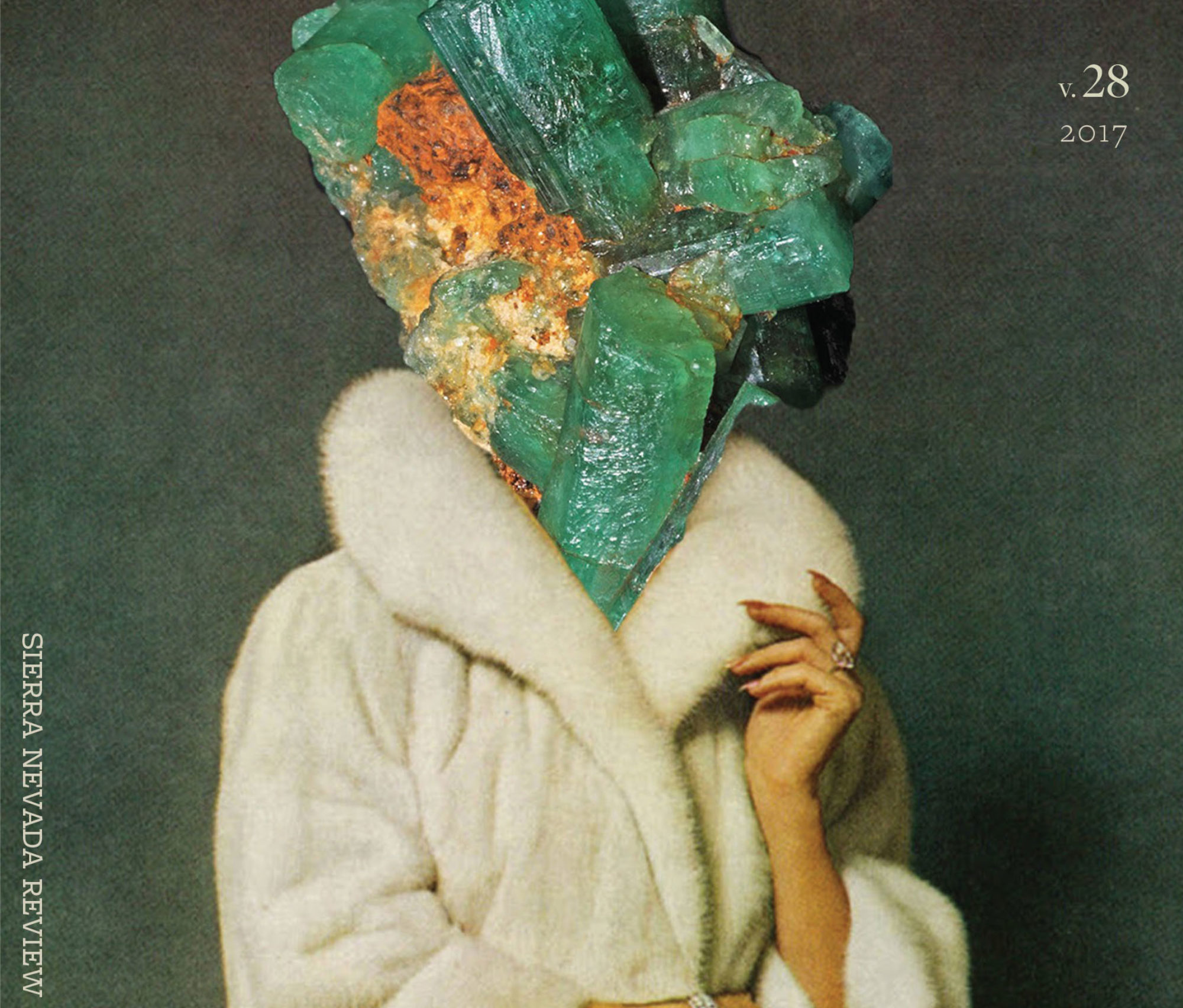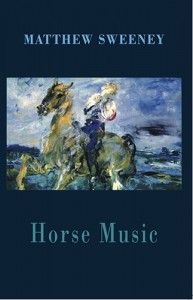By Bryce Bullins
“Naked, exposed to the frost of this most unhappy of ages, with an earthly vehicle, unearthly horses, old man that I am, I wander astray.” Thus marks the opening page of Matthew Sweeney’s latest collection of poetry, Horse Music (Bloodaxe Books, 2013 ISBN: 978-1-85224-967-0). It is a quote from Franz Kafka’s story, A Country Doctor, and a wholly fitting one, along with quotes from Edward Lear and Walter de la Mare, that serves as a preface to the poetry collected here. It’s the sort of biting, awkwardly funny, self-deprecation that Sweeney’s poetry often evokes. Horse Music has no overall theme per-se, but rather, is a collection of one-off fables about dwarves, recollections of long-dead or still living relatives, and of loves present and former. In a phrase: it is a sweeping exploration of life. Sweeney’s voice is unique in that while combining traditional narrative style poetry (albeit condensed narratives and often in media res) he blends elements of black humor, Kafkaesque territories, and what Sweeney himself calls “alternative realism”, to hook his readers and make Horse Music a pleasure to experience from cover to cover.
The poems in Horse Music don’t stray far from Sweeney’s other work, and rightfully so. After publishing poetry collections since 1981, it is fair to say Sweeney has found his voice. Horse Music may represent the flourishing of his voice, however. Deftly paced and lyric, Horse Music is amalgam of voices from across literary tracts. Influences of Kafka are abundant, unsurprisingly so, given Sweeney’s extensive background in German literature, specifically Kafka, but there is a more subtle craftsmanship at work here. Sweeney deliberately makes strides away from not only the two domineering figures of Irish poetry: W.B. Yeats and Seamus Heaney (though there is a poem for Seamus Heaney within Horse Music, “The Tunnel”) but his contemporaries, Paul Muldoon and Ian Duhig. Sweeney keeps what the British Council on Literature calls an “inherited Irish interest in narrative”[1] while keeping a keen interest in the themes in the great works of German literature. There is no disrespect toward his fellow Irishmen but rather a nuanced respect that Sweeney builds over their foundations and then takes toward new horizons. Gone are the “well-made-poems” and in their place come byzantine ornamentations in the form of micro-narratives that spread out across ages. If Sweeney’s poems were written in such a way as to ape Yeats or Heaney, they would be nowhere near as enjoyable as they are in their present form.
While Sweeney’s poetry is at times self-referential, it would be remiss to call it “confessional.” Instead, Sweeney obfuscates his poems in ornate tapestries of illusion and black humor. Nowhere is this expressed more than in this reviewer’s favorite poem in the collection, “Waiting”, wherein Sweeny bemoans the perils of always waiting for one thing or another and the doldrums produced therein:
I’d like to knife my partner, the postman,
my publisher, the bank teller, my neighbor.
One day I’ll emigrate to Antarctica
and befriend the penguins there. (9-12)
Sweeney is able to parse words we usually don’t want to consider together to create a new fiction for us to partake in, all the while still grounding us in the present.
It is clear from Sweeney’s writing that he stays away from the heady realm of surrealism and magical realism but rather focuses on connections, subtle and otherwise, in the form of metaphor and fantastic imagery. In “Sausages”, Sweeney makes connections between the “six [of them] inhabiting the same gut… / waiting on the hot pan with spitting oil” (1-3) to his “long-dead grandfather” (6). More grim is that each sausage has within them a meta-piece of said grandfather. Sweeney is able to take something as banal as frying up sausages and is able to trace the lines of interconnectivity in them to an intensely personal plain. Though the image is initially grotesque, it becomes something of an episode of bittersweet memory:
…so my grandfather lights a cigarette,
opens a bottle of Guinness and swigs it,
sitting down at the far end of the table
the table I will sit at when you’re browned,
and I’ll eat you, one by one, with mustard,
raising a black glass to my grandfather. (16-21)
Horse Music is at times morose, but more often than not, heartfelt and warm. The broadness of its scope is well suited to its narratives and its intrigues. It is the everydayness of Sweeney’s poetry that makes it so appealing now and what will make it so enduring for the future. Horse Music is available now via Bloodaxe Books and is distributed in North America by Dufour Editions Inc.

